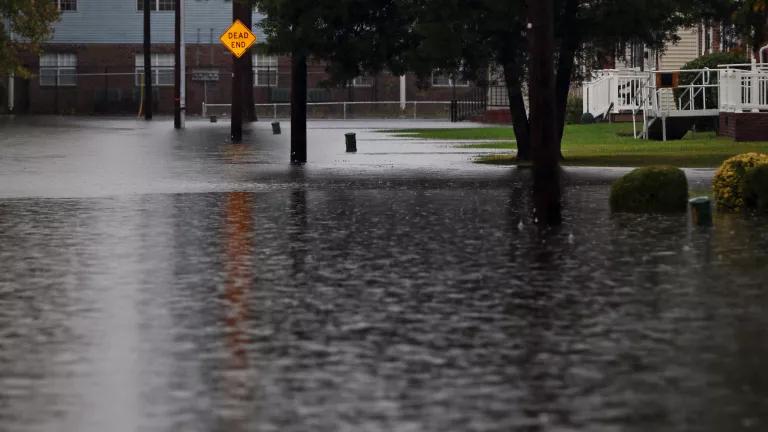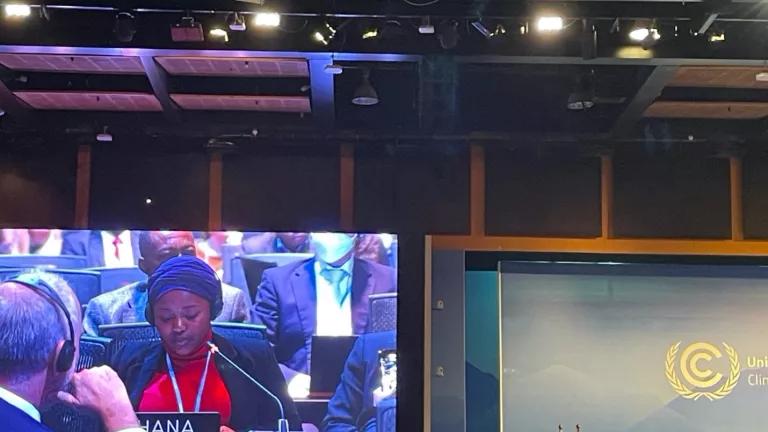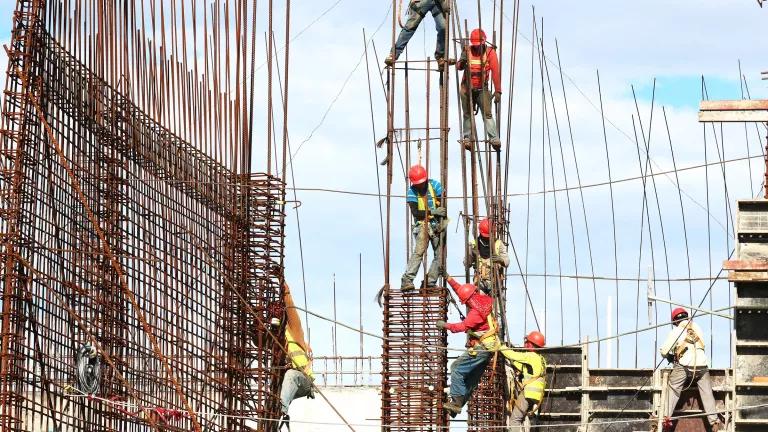The Investments in Equity and Climate That We Desperately Need
President Biden’s Build Back Better agenda can put people to work while confronting climate change. A summer of mounting crises proves Congress must fully enact it now.
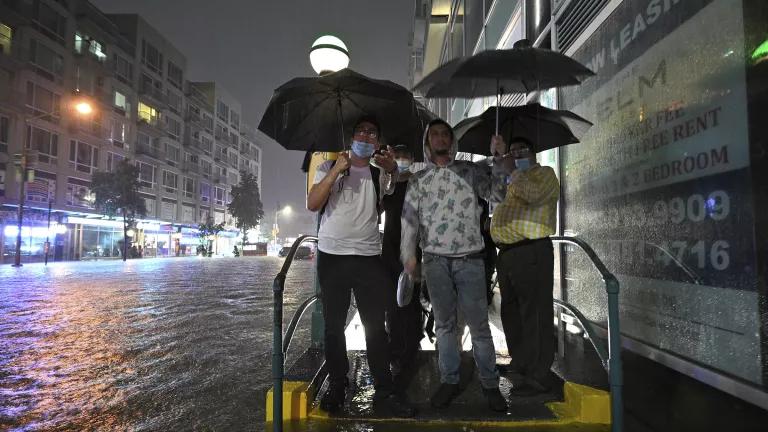
People stand at a subway entrance surrounded by flash floods that were caused by Hurricane Ida in New York City, on September 1, 2021.
This Labor Day ushers in the last gasp of a summer that has driven home the rising costs and mounting dangers of climate change—across this country and around the world. How much worse it all gets is in our hands, and much depends on what we do this fall.
July was the hottest month since global record-keeping began in 1880. The Colorado River is drying up, the Gulf Stream is slowing down and, for the first time in recorded history, it’s raining on Greenland’s massive ice sheet.
Across the American West, wildfires have torched enough land to cover half the state of New Jersey, the worst drought in at least four centuries has turned croplands and pasture to dust, and summer heat waves killed hundreds of people.
Thousands more were killed or left homeless by flooding that wiped out entire villages in China, Germany, India, Japan, and more than a dozen other countries. The worst drought in 40 years has driven 400,000 people to the brink of famine in Madagascar. And wildfires in drought-parched Siberia—home to some of the coldest places humans inhabit in winter—raged larger than all of the world’s fires combined.
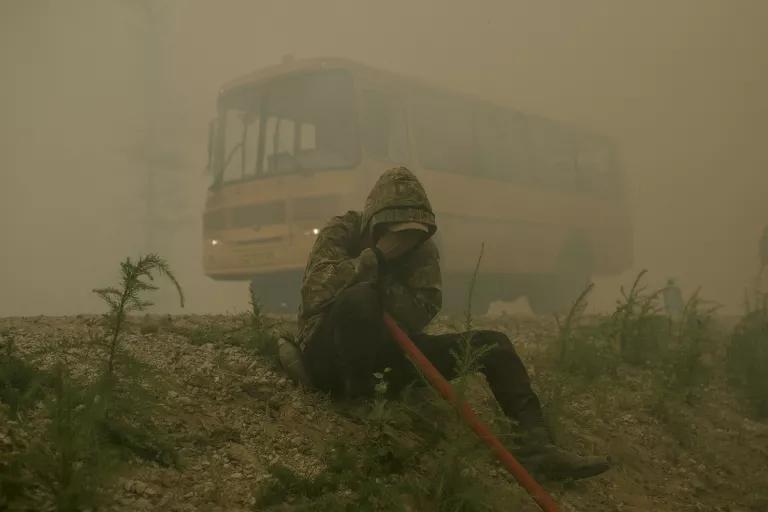
Ivan Nikiforov/Anadolu Agency via Getty Images
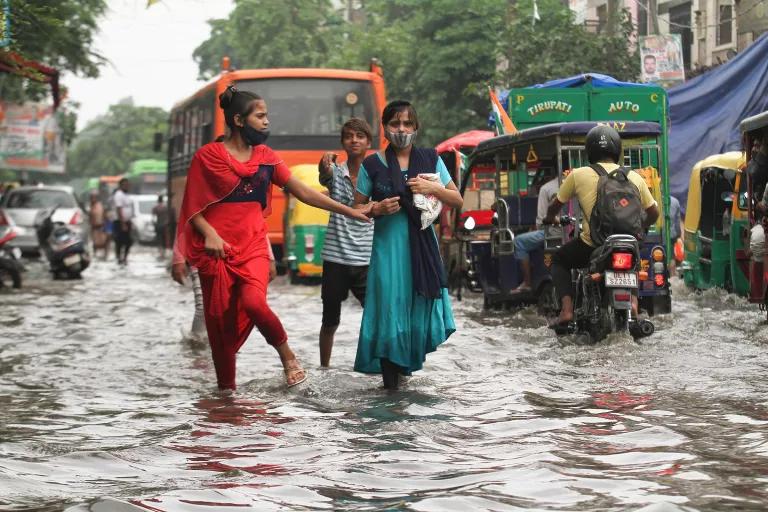
Naveen Sharma/SOPA Images/LightRocket via Getty Images
And of course, just this week, Hurricane Ida—which blew into a monster Category 4 storm after drawing energy and moisture from Gulf of Mexico waters that were heated to bathtub temperatures—swamped much of southern Louisiana and left a million people without power before flooding much of the Eastern Seaboard and killing at least 26 people in the tristate area. The remnants of Ida shattered the record for the most rain to fall on New York City in one hour—a record set just 11 days prior by Tropical Storm Henri.
All of this, and more, is on track to get worse, the landmark Intergovernmental Panel on Climate Change report, released in August, makes clear. But what we do, or fail to do, in the months and even weeks ahead could well mean the difference between crisis and catastrophe.
Getting this right means cutting the U.S. carbon footprint, engaging U.S. leadership to rally the global action we need, and making sure no country gets left behind.
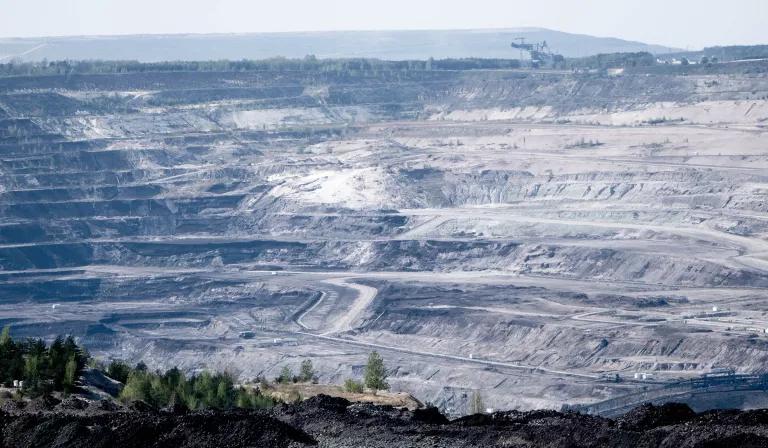
One of two open-pit coal mines serving the Bełchatów Power Station near Bełchatów, Poland, on April 18, 2020
We’ve got to cut the carbon pollution from burning fossil fuels by at least half by 2030, and stop adding it to the atmosphere altogether by 2050, to avert the most catastrophic consequences of climate change.
President Biden has a plan to set the United States on course to do just that, through his agenda to Build Back Better. In addition to revitalizing the nation’s bridges, roads, and ports, it calls for cleaning up the dirty power plants that account for about a third of the U.S. carbon footprint; expanding public transit; speeding the shift to electric vehicles; and capping abandoned oil and gas wells. And 40 percent of the climate and clean energy investment would go to disadvantaged communities that tend to pay the highest price for climate hazard and harm.
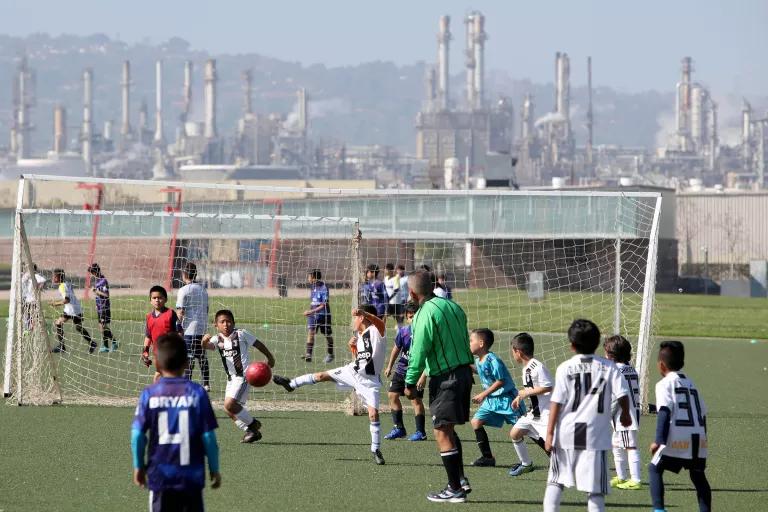
Soccer teams play at Wilmington Waterfront Park near a Rio Tinto refinery and shipping operation and the Port of Los Angeles in Wilmington, California, on February 16, 2020.
The strongest package of U.S. climate action ever, Biden’s Build Back Better agenda, once enacted, can create an estimated 15 million jobs, including for workers who want to belong to a union. It will help make our society more equitable and our people more prosperous. And it will position the country to confront the climate crisis.
Now Congress must fully enact Biden’s agenda. The Senate took a step in that direction in August with the passage of the bipartisan infrastructure bill. But this falls far short of what’s necessary to avert climate disaster. Now congressional leaders have to finish the job as part of a larger budget package, which the House and Senate can pass with Democratic support alone, if necessary.
Both the House and Senate have passed blueprints for the additional investment required. It’s critical that these broad strokes be written into actual legislation in the weeks ahead so the Build Back Better agenda can be enacted in full. That will strengthen Biden’s hand in rallying the global action we need, when it’s never been more important.
In November, the United Nations will host critical global climate talks, in Glasgow, Scotland, that follow up on the landmark 2015 Paris climate agreement. The Paris accord gathers the United States and 195 other countries around a pledge to hold global warming to below 2 degrees Celsius, and preferably 1.5 degrees or less, to head off the worst consequences of climate change.
The Earth has already warmed by 1.1 degrees Celsius, mostly over the past 40 years. To keep from blowing past 1.5 degrees of warming in little more than a decade, the world must cut carbon pollution even more than what countries committed to in 2015.
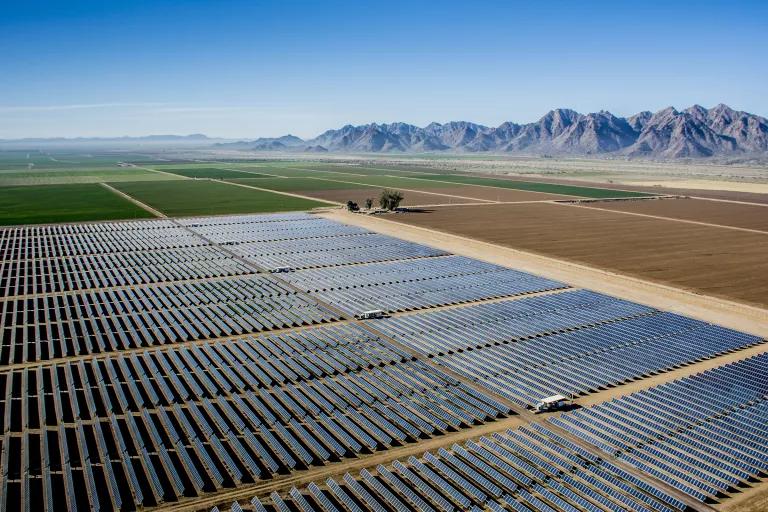
A large solar farm in Gillespie, Arizona
The Glasgow talks must focus the world on raising our climate ambitions. Biden has pledged to cut the U.S. carbon footprint by 50 percent to 52 percent by 2030, relative to 2005 levels. Enacting the Build Back Better agenda will strengthen Biden’s hand in his efforts to push for comparable cuts worldwide.
Finally, we have to make certain at Glasgow that developing countries have access to the capital and technology they need to both cut their carbon footprint and protect their people from climate damage and danger. And we must, among the community of nations, hold each other to account for the pledges we make at Glasgow so we can turn our climate promises into the progress we need.
Global leadership begins at home, as much with the climate crisis as anything else. Congress must enact Biden’s agenda to Build Back Better. We have to use the weeks between now and the U.N. climate conference to raise global ambition. And we’ve got to make good at Glasgow on the rapidly closing window of opportunity we have to act in our national interests, and in the interests of the world, and stand up to the climate crisis—while there’s still time to act.


